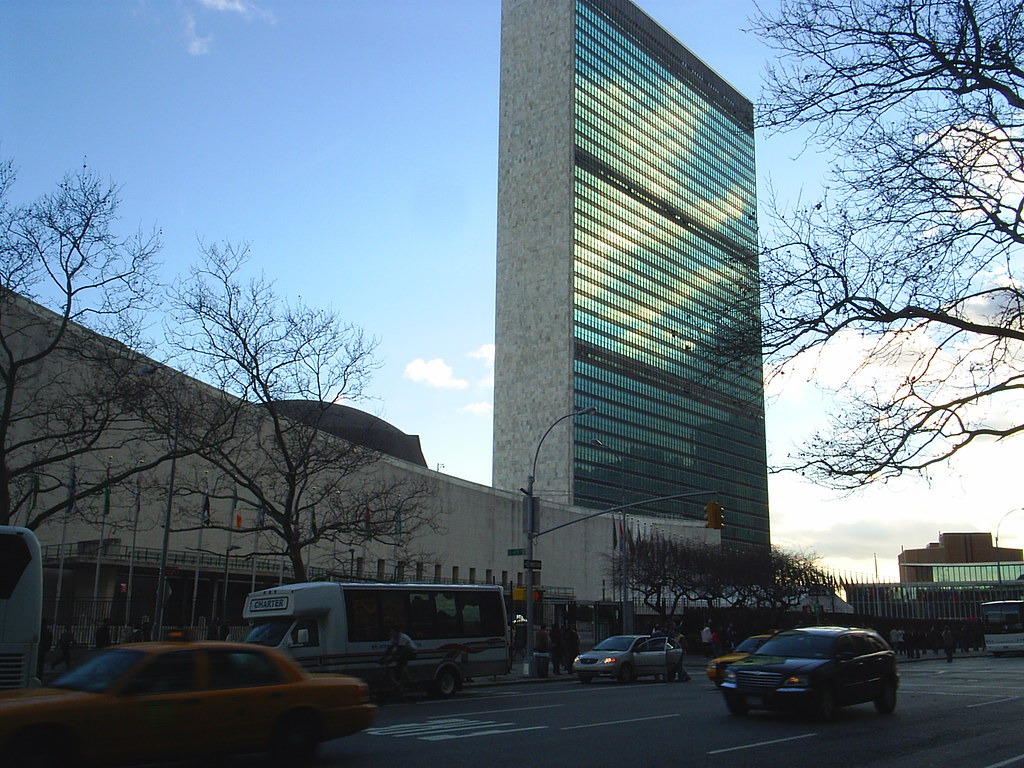On Oct. 18, Collegian Columnist Simon Fox published his piece, “Stop criticizing global organizations.” In the column, Fox argues that the benefits of international organizations like the International Monetary Fund (IMF), World Economic Forum (WEF) and United Nations (U.N.) overshadow the “nefarious conspiracy theories that are attributed to these organizations.” He fails to consider any critiques of such organizations that do not boil down to conspiracism, and with the title of the piece, implies that simple criticism of such organizations falls under conspiracy. He also argues that these conspiracies are crafted in opposition to progress.
I would argue that criticism is the only way forward, especially towards influential global institutions. Rigorous critique is the only tool we have as a people to hold these organizations responsible; we do not elect the members of the U.N. or the WEF, and when they’re ineffective in their mission, our voice is the only method of accountability.
Critique of institutions has proven to be a powerful tool in the betterment of society. Take the anti-war movement during the Vietnam War: the American people’s widespread opposition to the war was imperative to the United States’ withdrawal. The U.S. claimed its goals in Vietnam were righteous – as the U.N. and WEF claim their mission is – and reality said otherwise. The U.S. devastated Vietnam with indiscriminate bombing and murdering civilians while claiming they were fighting for values of freedom and democracy.
At first, the anti-war movement was looked at exactly as Fox looks at criticism of world organizations: far-out and unrealistic. In order to dismiss criticism, establishment media sensationalized violent incidents in the protest movement, like the actions of the Weather Underground, which were rare overall. Fox’s argument follows a similar path: he examines only the most sensational critiques of world organizations and from that dismisses criticism of said organizations entirely.
Though I’ve mentioned criticism of a government and not a non-governmental organization, the analogy still works to demonstrate the power of critique and the media’s role in misrepresenting critique in order to dismiss it.
Fox cites only the mission statements of the U.N. and the WEF as proof that these organizations are working to better society. Yet of course these organizations present themselves as virtuous. Their mission statements are the most biased source one could possibly use to inform themselves on these organizations. This method of argument is blind to all other perspectives on the U.N. and the WEF, thus ignoring the full scope of reality.
It does not take much research to find that there are plenty of material critiques, both old and new, of the U.N., the WEF and the IMF. During the U.N.’s intervention in Haiti, they admitted responsibility for a 2010 cholera outbreak that killed thousands of Haitians.
Human Rights Watch reported that U.N. peacekeepers in Haiti committed horrific sexual abuse on Haitian women, which went unprosecuted as U.N. peacekeeping accountability is left up to the troops deployed there, a clear flaw in the system of accountability. U.N. peacekeepers are also reported to have committed rape in Somalia, the Central African Republic and the Democratic Republic of the Congo.
The 1990-2003 U.N. Security Council sanctions in Iraq were devastating to the country’s civilian population, particularly children. With almost no humanitarian goods flowing into the country due to sanctions, and after western bombing campaigns destroyed Iraq’s infrastructure, food insecurity became a major problem. In 1997, nearly a third of Iraqi children under five suffered from malnutrition, a condition which leads to many physical and cognitive defects later in life.
The WEF claims to be working towards collective global prosperity, yet the numbers show otherwise. Every year at the WEF meeting in Davos, Switzerland, the independent charitable organization OxFam releases their report on global wealth inequality. This year, they reported that the richest one percent of the world’s population owns 45.6 percent of global wealth, while the poorest 50 percent own just 0.75 percent. This is a worsening trend too: OxFam also reportedthat the richest one percent gained about 63 percent of new wealth between 2020 and 2021, while the bottom 90 percent gained only 10 percent. Clearly the WEF’s mission of collective global prosperity is failing. We should be criticizing this organization ruthlessly until they start acting in the interest of all people.
To understand why an organization like the WEF fails in its mission, it is important to look towards the leadership of the forum. The current president of the WEF, Børge Brende, was a former board member of Norwegian multinational oil corporation Statoil. On the board of trustees sits the CEOs of Nestlè and BlackRock; these are just a few examples of the overwhelming corporate ties in the leadership of the WEF.
The WEF is funded by the powerful political and business figures in its membership, and with these donors they seek to influence global decision-making. The undemocratic nature of corporate interest influencing the political and economic decisions of world governments is clear. How can the WEF serve a global agenda if their leadership consists of wealthy corporate leaders with converging economic interests that diverge from that of the majority of the people?
At the end of his article, Fox writes: “I am confident that over time the benefit these multinational organizations provide to society will drown out the criticism that they have encountered over the past few decades.”
I hope that the valid and vital criticism of these organizations will never be drowned out. I hope such critique is the loudest voice in the room, because that is the only way the people can hold these organizations and their leaders accountable when they fail in their mission towards global prosperity.



















